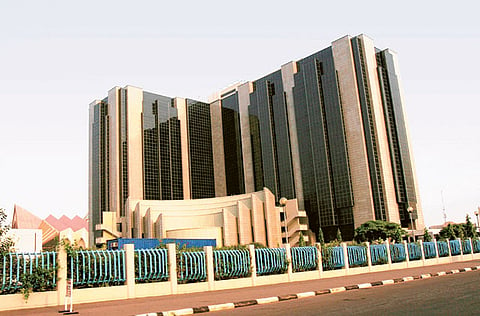Islamic finance baffling Nigeria
Massive education drive needed to clarify misconceptions about the system

Dubai: Nigeria has become a battleground for Islamic finance, further dividing Africa's most populated country.
Some recent newspaper headlines include:
- Islamic Banking: Muslims Ready to go to War
- Islamic Banking: Insult to Nigeria — Cleric
- Stop Islamic Banking in Nigeria
- Christian groups oppose establishment of Islamic Banking
- Islamic Banking: Christian groups may apply for own licence
Behind the headlines are the usual myths about Islamic finance: It's only for Muslims; it is a backdoor conversion of secular Nigeria into an Islamic state and that it is used to finance terrorism, among other misconceptions.
In Nigeria, Islamic finance cannot be positioned as a "choose or lose" proposition.
The country, at one level, is an acid test in the cross-selling of Islamic finance to places like the US and South Korea, and other places where there is an anti-Sharia movement.
Early warning signs
There were two early warning signs in Nigeria of the inevitable resistance to Islamic finance, first that many non-Muslim Nigerians did not want to be part of the Organisation of Islamic Conference and opposition to Boko Haram, an offshoot of Al Qaida.
Going by the newspaper headlines, many non-Muslim Nigerians are not convinced Islamic finance is about business, but rather about religion.
Even if slick presentations with eloquent oratory were made about its "peaceful" presence in UK or Hong Kong, Singapore, Luxembourg, Paris, and other non-Muslim countries, those opposed were not going to be convinced because of religion, history and landscape of Nigeria.
The same anti-Islamic finance people are not interested in tapping Gulf Cooperation Council money, because they believe it will not reach them as Islamic finance is only for Muslims. They believe this money will give Muslims more power and influence, resulting in the mass conversion of Christians and a caliphate established in Nigeria.
Furthermore, these people do not consider the successes of Islamic finance in sub-Saharan African countries including Kenya, Uganda, South Africa and Ghana, among others.
The political dynamics are different in a country as large and as diverse as Nigeria.
Notwithstanding the highly-charged situation in Nigeria, is there a way to reset the Islamic financing offering in the country?
Financial inclusion is the essence of Islamic finance, hence, all the important stakeholders need to be involved in not only educating people and eradicating fears, but more importantly, to solicit their opinion.
The Nigerian media carries the message to the masses, but what they need to be briefed on is first what Islamic finance is and, more importantly, what it is not. This would entail presentations and question and answer sessions by the Governor of the Nigerian reserve bank, Mallam Sanusi Lamido Sanusi, and his supporters, who are in favour of the introduction of Islamic finance to Nigeria.
Furthermore, these briefings should be part of an ongoing dialogue. The same approach must be utilised to brief members of parliament, with the emphasis on interactive questions and answers.
Perceptions can be corrected by explaining the selection process of Sharia compliant stocks. If we apply the present Islamic stock screening, similar to negative screening of social-ethical investing, to the Nigerian stock exchange, it will show local compliant companies.
Typically one third of companies listed on an exchange are Sharia-compliant, hence, some of these companies may already be in investors portfolios. This will make it clear that Islamic equity investing is not about investing in shady companies that have hidden Islamic agenda.
As part of inter-faith dialogue, finance should also be discussed among religious people, including imams, priests and bishops.
Financial education is needed for the imams on Fiqh-ul-Maumalat, but it's better to do it right rather than fast.
One of the most often raised allegations about Islamic finance is that it is used to finance terrorism, be it via zakat or the donation of impermissible income. Obviously, perceptions are stronger than reality, and need to be addressed by imams and scholars as the first line of education outreach.
Non-Muslim chief executives and other senior executives from Islamic banks must be brought to Nigeria to explain the proposition as they have more credibility when speaking to local non-Muslims and clergy. It will also show that Islamic finance is not only for non-Muslims as customers, but also as employees.
Nigeria should look at the track record of a strong Muslim secular state like Turkey, which has Islamic banking. Turkey calls it Participation Banking, the essence of Islamic finance, and such branding will resonate in Nigeria.
Finally, it might have been easier if Governor Sanusi included the halal food industry with Islamic finance. Everyone loves food and its foundation of meaningful dialogue.
It is not too late to reset the discussion about Islamic finance in Nigeria.
The writer is head of Islamic Finance at Thomson Reuters. Opinions expressed are in his personal capacity.



